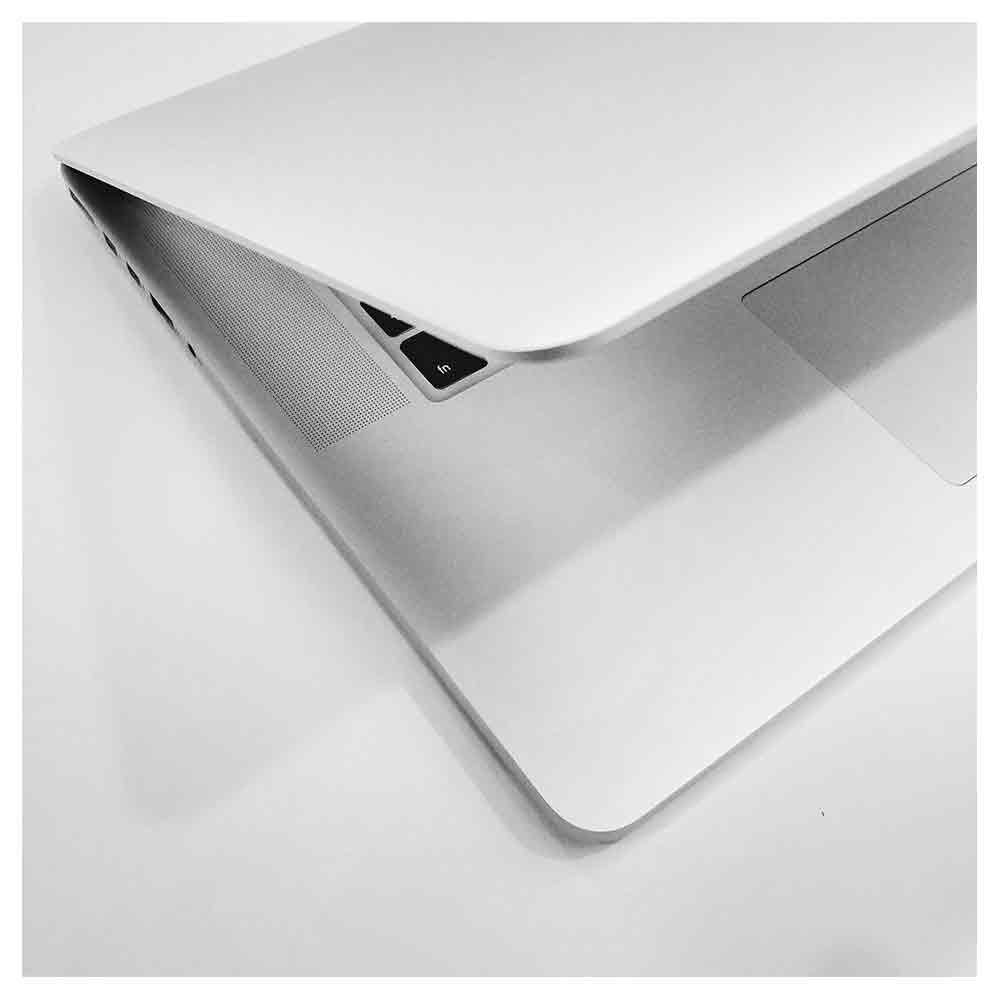How to Sell an Idea: A Comprehensive Guide to Turn Your Ideas Into Profitable Ventures
Have you ever had a great idea you knew could change the world but didn't know how to bring it to life? It's time to learn the art of idea selling.
In this comprehensive guide, we'll explore the process of selling an idea, from conception to closing the deal.
Along the way, I'll cover everything from establishing ownership and legal status to securing funding, creating a professional presentation, and working with potential buyers.
I. The Foundation: Idea Validation and Research
Before you can sell an idea, ensuring it's worth pursuing is essential. This means validating your business idea and conducting thorough research.
1. Validate Your Idea
The first step in selling an idea is to ensure it's a unique and innovative concept with real market potential. Here are some tips to help you validate your idea:
Compile data on your target market, identifying potential customers and their pain points.
Seek as much feedback as possible from friends, family, and industry experts.
Set realistic expectations for your idea's success and potential market share.
2. Conduct Thorough Research
Now that you have a solid idea, it's time to dive deep into research. This includes:
Investigating the competition: Determine if similar ideas or products already exist, and how your idea can stand out.
Understanding the market: Identify trends, customer preferences, and potential barriers to entry.
Developing a business model: Outline how your idea will generate revenue and profit, and identify potential partners or resources.
II. Establish Ownership: Protect Your Intellectual Property
To ensure that your idea remains your own, it's critical to establish ownership by protecting your intellectual property. Consider the following steps:
1. File for a Patent
Consider filing for a patent if your idea involves using unique materials, a tangible product or a unique process. Consult with a qualified attorney or patent lawyer to navigate the often complex and lengthy process of patent-securing new ideas.
2. Protect Your Creative Works
Consider copyright protection for creative ideas, such as content or design. This will help safeguard your idea from unauthorized copying or distribution.
3. Utilize Non-Disclosure Agreements (NDAs)
Using a nondisclosure agreement to protect sensitive information when discussing your idea with potential partners, investors, or collaborators.
III. Secure Funding: Attract Investors and Partners
Once you've established ownership, it's time to secure funding for your idea. Consider these strategies:
1. Create a Professional Presentation
Craft a compelling pitch that showcases your idea's potential, complete with market research, financial projections, and a clear path to profitability. Be prepared to answer questions and address concerns.
2. Network with Potential Investors
Attend industry events, join online forums, and leverage your personal connections to find potential investors who may be interested in your idea.
3. Explore Alternative Funding Options
Consider crowdfunding platforms, grants, or loans to secure the necessary capital for your idea.
IV. The Art of Idea Selling: Target the Right Buyers and Present Your Idea Effectively
Now that you have a solid foundation, it's time to master the art of idea selling. This involves identifying potential buyers, creating a compelling sell sheet, and presenting your idea most effectively.
1. Identify Potential Buyers
Start by listing companies or individuals who might be interested in your idea. Consider the following tips:
Focus on businesses aligned with your idea's industry or target market.
Research companies that have a history of investing in or acquiring innovative ideas. Target both large companies and small businesses, as each may offer unique opportunities for collaboration or partnership.
2. Create a Compelling Sell Sheet
A sell sheet is a concise, visually appealing document highlighting your idea's key features and benefits.
Use it to capture the attention of potential buyers and give them a reason to learn more. Here are some tips for creating an effective sell sheet:
Keep it to one or two pages, focusing on the most important and relevant information.
Use high-quality visuals, such as images or diagrams, to illustrate your idea's unique selling points.
Include testimonials, case studies, or other proof of concept to demonstrate the viability and potential of your idea.
3. Craft an Introductory Letter
An introductory letter is a personalized message sent to potential buyers along with your sell sheet. Use this opportunity to:
Introduce yourself and your idea.
Explain why you believe the recipient would be interested in your idea.
Invite the recipient to review your sell sheet and provide feedback or express interest.
4. Present Your Idea Effectively
Once you've captured the attention of potential buyers, it's time to present your idea in a professional and persuasive manner. Keep these tips in mind:
Be prepared with a detailed presentation that covers all aspects of your idea, including market research, financial projections, and a clear path to profitability.
Practice your pitch and be ready to answer any questions or address concerns.
Demonstrate passion and enthusiasm for your idea, but maintain professionalism and focus on the facts.
V. Negotiating and Closing the Deal: Turn Your Idea Into a Profitable Venture
You've validated your idea, protected your intellectual property, secured funding, and presented your idea to potential buyers. Now, it's time to negotiate and close the deal. Here's how:
1. Set Realistic Expectations
As you enter negotiations, be realistic about the value of your idea or service and the terms you're willing to accept.
Remember that potential buyers will likely have expectations and priorities, so be prepared for some back-and-forth.
2. Seek Professional Services
Enlist the help of a qualified patent attorney, patent lawyer, or other professional to guide you through the negotiation process and ensure that your interests are protected.
3. Maintain Open Communication
Throughout the negotiation process, keep the lines of communication open with potential buyers. Provide any additional information they may request and be willing to adapt or refine your idea as needed.
4. Be Patient and Persistent
Closing a deal can take time and may require multiple rounds of negotiation. Stay patient and persistent, and remember that your ultimate goal is to turn your idea into a profitable venture.
In conclusion, selling an idea is a multifaceted process that requires research, validation, and a strategic approach.
Following the steps outlined in this guide, you can turn your brilliant ideas into profitable ventures and leave a lasting impact on the world. So, go out there and sell your idea with confidence and determination!
Frequently Asked Questions About Idea Selling (FAQs)
What is idea selling?
Idea selling is the process of pitching, promoting, and ultimately selling a unique concept, invention, or business idea to potential buyers, investors, or partners. The goal of idea selling is to turn an innovative idea into a profitable venture or collaboration.
How do I validate my own idea before trying to sell it?
To validate your idea or solution, gather data on your target market and identify potential customers and their pain points.
Seek feedback from friends, family, and industry experts, and set realistic expectations for your idea or solution's success and market share.
How can I protect my intellectual property while selling my idea?
Protecting your intellectual property is essential when selling an idea. Consider filing for a patent if your idea involves a tangible product or unique production process, copyrighting creative works, and using non-disclosure agreements (NDAs) when discussing your idea with potential partners, investors, or collaborators.
What is the best way to present my business idea to potential buyers?
Create a professional presentation highlighting your idea's potential, complete with market research, financial projections, and a clear path to profitability.
Be prepared to answer questions and address concerns. Additionally, craft a compelling sell sheet and introductory letter to capture the attention of potential buyers.
How can I find potential buyers or investors for my idea?
Identify potential buyers by researching companies and individuals interested in your idea, focusing on those in your industry or target market.
Attend industry events, join online forums, and leverage your personal connections to network with potential investors.
How do I negotiate a deal for a great idea?
Set realistic expectations for the value of your idea and the terms you're willing to accept. Seek the help of a qualified attorney or professional to guide you through the negotiation process, maintain open communication with potential buyers, and be patient and persistent.
What should I do if my idea is not well-received or if I cannot sell it?
If you can't sell your idea, consider refining or pivoting the concept based on the positive feedback that you received.
Alternatively, explore other avenues to get money to bring your idea to life, such as crowdfunding, bootstrapping, or partnering with a different company or individual.
How long does it typically take to sell an idea?
The timeline for selling an idea can vary widely, depending on factors such as the complexity of the idea, the target market, and the potential buyers involved.
It's essential to be patient and persistent throughout the process, as it may take several months or even years to sell an idea successfully.
Can I sell an idea even if I don't have a tangible product or prototype?
Yes, selling an idea without a tangible product or prototype is possible, particularly if strong market research, a solid business model, and a clear path to profitability support the idea.
However, having a tangible product or prototype can be beneficial, providing potential buyers with a more concrete representation of your idea's potential.
How do I determine the value of my idea?
Determining the value of your idea involves evaluating factors such as market potential, the uniqueness of the concept, potential revenue and profit, and the costs associated with bringing the idea to life.
Conduct thorough market research, analyze the competition, gather information, and create financial projections to help estimate your idea's value.
Can I sell my idea to multiple buyers?
It's possible to sell your idea to multiple buyers, but this depends on the nature of the idea and the agreements you enter into with each buyer.
Be transparent with potential buyers about your intentions, and consult a qualified attorney to ensure that your agreements allow multiple sales.
What happens if someone else has a similar idea? Can I still sell mine?
If someone else has a similar idea, you can still sell your idea as long as it has unique and distinguishing features that set it apart.
Focus on emphasizing the unique aspects of your idea, and be prepared to adapt or refine your concept if necessary to differentiate it from the competition.
How can I improve my chances of successfully selling my idea?
To improve your chances of successfully selling your idea:
Thoroughly validate and research your idea to ensure it has real market potential.
Protect your intellectual property by filing for patents, copyrights, or using NDAs.
Develop a solid business model that outlines how your idea will generate revenue and profit.
Create a professional presentation and compelling sell sheet to pitch your idea to potential buyers effectively.
Network with potential investors and partners within your idea's industry or target market.
Be patient, persistent, and adaptable throughout the idea-selling process.
What risks are involved in selling an idea?
Selling an idea involves risks, such as revealing sensitive information to potential buyers, losing control of your intellectual property, or encountering legal issues during negotiations.
To mitigate these risks, protect your intellectual property, use NDAs when discussing your idea, and enlist the help of qualified professionals to guide you through the process.
How do royalties work when selling an idea?
Royalties are payments made to an idea or intellectual property owner based on the sales or profits generated by the product or concept. You can discuss royalty arrangements with potential buyers when negotiating a deal for your idea.
Royalty rates vary widely depending on the industry and the specific terms of your agreement. It's essential to consult with a qualified attorney to ensure that your royalty agreement is fair and legally enforceable.






























